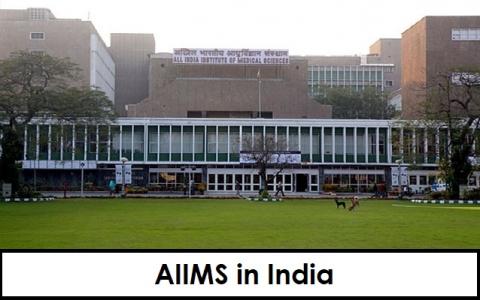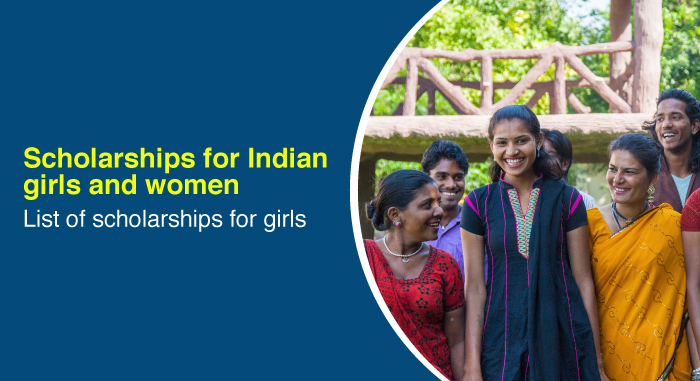Understanding the Types of Medical Colleges in India and Their Differences
Aspiring doctors in India have access to a wide range of possibilities in medical education. Given the variety of medical colleges obtainable, it’s crucial to comprehend how they may be divided and what makes them unique. The many sorts of medical colleges in India will be examined in this article, along with the differences between private institutions and universities. You can choose your medical education with confidence by learning more about these institutes.
Types of Medical Colleges in India
In India, medical education is controlled and divided into many categories based on various aspects like finance, affiliation, and governance. Students can better comprehend the structure, admissions processes, and eligibility requirements by understanding how medical colleges are categorised.
In India, there are basically four different kinds of medical schools:
- Central Govt. College
- State Govt. College
- Private Medical College
- Deemed Universities
-
Central Government Medical Colleges
Central Government Medical Colleges are prestigious organisations that the central government oversees and finances. All India Institute of Medical Sciences (AIIMS), Jawaharlal Institute of Postgraduate Medical Education and Research (JIPMER), Banaras Hindu University (BHU), and Madras University (MU) are a few renowned institutions that belong under this category. There are places available in these colleges for students from all around India or All India Quota.
Understanding All India Quota
Students have the chance to compete for admissions in state government medical institutes outside of their native state thanks to the All India Quota. Students from any state are eligible to apply under this quota and are admitted on the basis of their merits. The Medical Counselling Committee (MCC) oversees the All India Quota counselling process.
-
State Government Medical Colleges
State Government Medical Colleges,as the name implies the institutions created and supported by state governments,. State Quota and All India Quota are the two types of seats available at these colleges.
- 15% of the seats available under the All India Quota are open to students from all states, while the remaining
- 85% are set aside for students from that state. Domicile is a key factor in obtaining admission under the State Quota.
State Quota and Domicile Reservation
The term “state quota” describes the seats set aside in state-run medical schools for citizens of that state. The practice of “domicile reservation” guarantees that a specific number of seats are reserved solely for applicants from the state in which the college is situated. For the purpose of determining their eligibility for state quota seats, students must indicate the state in which they reside.
Considerations for College Selection
Selecting the best medical college needs serious thought. The decision-making process is influenced by elements like seat availability, competitiveness, state-specific cut-offs, and the number of government colleges in a certain state. There may be many government colleges in some states, which results in a relatively lower cut-off, whereas there may be fewer seats and a higher cut-off in other areas.
-
Private Medical Colleges
Institutions that are privately owned and supported are known as private medical colleges. These universities provide medical education and each has its own requirements for entrance and tuition. Private college admissions counselling is not carried out through centralized procedures like the MCC. Private medical college admissions are handled by individual counselling authorities or agencies in each state or region.
-
Deemed Universities
The University Grants Commission (UGC) bestows university status on deemed universities, which are independent organisations. These universities provide medical education and have their own admission requirements and exams. 15% of seats at Deemed Universities are set aside for Non-Resident Indians (NRIs), with 85% of seats available for general admission.
Comparison: Private Medical Colleges vs. Universities
Private medical colleges and universities differ mostly from one another in terms of their connections. Private medical schools are associated with the corresponding state health universities, whereas universities are autonomous organisations that are able to hold their own admissions processes and confer degrees. Many state private colleges also uphold excellent standards of education, even if universities have more freedom and opportunity for research.
Factors Influencing College Choice
Several considerations must be examined while deciding between private medical colleges and universities. These include financial factors, comparisons of other colleges, location to the college, accessibility to clinical facilities, and educational standards. To make an informed choice, it’s critical to assess these aspects in light of your score, resources, and goals.
A key step in pursuing a successful medical career is choosing the appropriate medical college. You can handle the admission process more successfully if you are aware of the many kinds of medical colleges in India and their distinctive qualities. In order to make an informed decision that is in line with your aims and desires, take into account variables like governance, affiliation, eligibility requirements, and your own preferences.
FAQs
Q1. Can I apply for seats in state government medical colleges outside my home state?
Yes, you can apply for seats in state government medical colleges under the All India Quota. This quota allows students from any state to compete for a portion of the seats available in state government colleges across India.
Q2. Are all seats in private medical colleges open to students from any state?
No, the availability of seats in private medical colleges varies from state to state. Some states may have seats reserved for students from other states, while others may prioritize admissions for candidates belonging to the same state.
Q3. Are there any differences in the fee structure between private medical colleges and universities?
Yes, the fee structure can vary between private medical colleges and universities. Private colleges have their own fee structure, while universities may set their fees independently. It is important to consider the financial aspects while selecting a college.
Q4. Do deemed universities have a different admission process compared to private medical colleges?
Yes, deemed universities have their own entrance examinations and admission procedures. The counseling and admission processes for deemed universities are not conducted through centralized bodies like the MCC.
Q5. How can I assess the quality of a medical college before making a decision?
You can assess the quality of a medical college by considering factors such as its infrastructure, faculty, reputation, research opportunities, clinical facilities, and past academic achievements. It is advisable to visit the college, if possible, or seek guidance from professionals and seniors in the field.
Click here to watch the youtube video on our Bodmas Medical Channel
Mr. Ashok Singh, an educational expert with a wide range of experience, is the source of this material. He began his career as a financial consultant in the banking sector, working for a number of prestigious firms. He obtained a lot of expertise in risk analysis, financial management, and investment planning during this time. He later worked at his mechanical engineering teaching centre, where he guided and instructed students preparing for competitive exams. He was well acclaimed by his pupils for his methods of instruction and his capacity to inspire them to succeed academically.
Ashok Singh has a distinctive viewpoint on the difficulties that students encounter while they work towards their academic objectives. To assist them in navigating the complexity of the educational system, he provides parents and kids with full educational consulting services. His advising services are personalized, and he works closely with each student to develop a unique plan that is suited to their particular requirements and objectives.

























